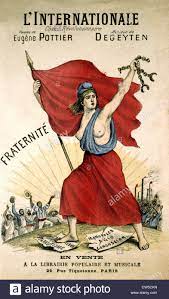The experience of singing/recording for the Solo Singing and Autoethnography assignment was a very confusing and not enjoyable experience. I’m not good at singing, so I’m honestly embarrassed to show it to others. And it was almost the first time I heard my voice through the speakers, and I realized that my voice was not good. During the rehearsal and recording of my songs, I got the pitch wrong and the beat felt weird. It seemed to be a mixture of tension, anxiety, and fear of trying new things. There was physical and emotional confusion. It was difficult to sing while maintaining one pitch. Also, I could tell what tone my voice was just singing without accompaniment, but there was a problem that I couldn’t tell where my voice was when I sang it. And because I lacked confidence, I always started passively with intros. Because I’m not that familiar with singing, and showing my songs to other people and taking videos is not something I usually do. Because of those issues, my songs are filled with tension and concern, and I think that can be felt in the song.
The process of choosing a song was very arduous. In general, singing is not something I do often. That was my new attempt. The reason I’m not good at singing is because I’m basically not good at high notes. At first, I tried to choose songs like Con Te Partio or O sole mio, but those songs were too high for me to sing. So I listened to several songs that I could sing well and selected them. I realized that songs such as military songs and national anthems go well with my voice.
The song I chose is ‘L’Internationale’. It was composed by Eugène Pottier in 1871 and by Pierre De Geyter in 1888. The song represents socialism and internationalism and occupies the most important musical role in social movements. The expression ‘international’ used in the title does not simply mean ‘global’. It symbolizes the ‘Socialist International’, an international organization of socialists, and ‘the idea of internationalism of the working class’. The international organization was so named because it advocated working-class internationalism and was in fact a transnational organization. This song has always been with the historical moments of socialism; It was called in Paris, in Spain, on the Eastern Front, in the Communist bloc. It is even used frequently in today’s social movements.
The meaning of the lyrics is as follows;
Arise, the damned of the earth!
Arise, prisoners of hunger!
Reason thunders in its crater,
This the eruption of the end.
Let’s make a clean slate of the past,
Enslaved mass, arise, arise!
The world’s foundation will change,
We are nothing, now let’s be all!
This the final conflict,
Let us unite and tomorrow,
The International
Will be the human race
This ‘L’Internationale’ is a very left wing, communist song. This is not in line with my beliefs. I am a Christian, libertarian, right winger who has never voted for any party other than the Republican Party in an election. But I am also a historian and I know how important this song is to history. And I want to understand the social atmosphere at that time and the people who sang this song. The people who sang this song were the workers who were persecuted in the early days of the Industrial Revolution, those who were exploited by their labor, and those who wanted social change. At that time, the poorest workers worked 15 to 17 hours a day without holidays and only drank sugared black tea. There was no bed, so he slept on a rope, and even if his limbs were amputated in a dangerous industrial accident, he received no compensation. In such a situation, socialist values made promises of everything that was not guaranteed, so it was natural to follow them. This song was a song calling for the revolution of all oppressed workers during the miserable industrial revolution at the time. I sympathize indirectly with this song, my first part-time job was a low-paying, poorly-paid job for the intensity of the work. That is why I was able to empathize with the workers at the time, who were in a worse situation than me.
The song’s ‘L’Internationale’ is in French, and both the lyricist and composer are French. However, the song has been translated into several languages, including English and Korean. I don’t think it’s appropriate to sing the music that people of different cultures or races generally sing, but because it symbolizes internationalism, I don’t think there’s a problem with singing even if you have different personalities. The reason I didn’t choose this song in English or in a language I’m familiar with is because I thought I could only feel its true meaning and emotion in my native language. Of course, I don’t know French at all, so a little pronunciation and reading skills were essential and it was a very difficult task.
The difference between solo singing and group singing is that, basically, I think that solo singing is suitable for demonstrating one’s skills or skills because an individual uses his or her own voice. Also, solo singing requires more courage because you have to endure everything yourself. On the other hand, since group singing is with people other than myself, it is important to tune your own voice to the voices of others. I think I prefer group singing because group singing can be helped by other people.
Singing or singing with other people in this class has an impact on me that I can empathize with people who have a completely different opinion through singing. For example, our first class test of songs from different cultures demonstrated general empathy for common human emotions.
L’internationale was first sung in Western Europe 150 years ago, and as I explained, my political orientation is very different. Nevertheless, as I sing this song, I can fully empathize and understand the situation and their feelings at the time. It is very effective in expressing or feeling emotions between singing and human perception. That’s why I think you can express your will or feelings and make others feel.



